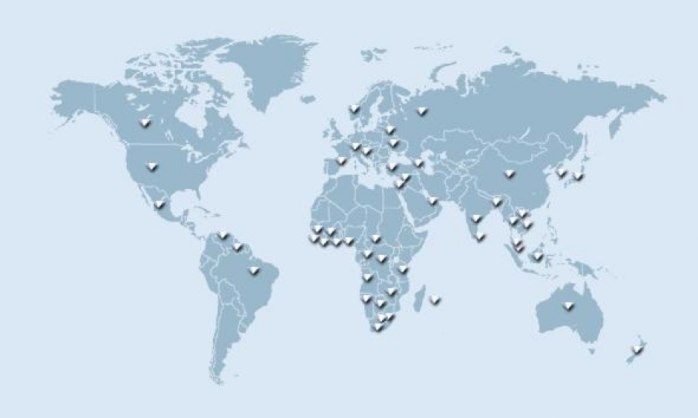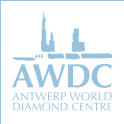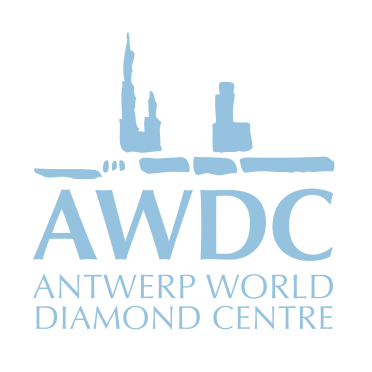- Home
- What can we do for you
- Obligations under EU law: restrictive measures
Obligations under EU law: restrictive measures
1. GENERAL
Generally restrictive measures aim at bringing a change in activities or policies such as violations of international law or human rights, or policies that do not respect the rule of law or democratic principles.
The European Union has a wide range of restrictive measures it can impose. Restrictive measures may comprise arms embargoes, other specific or general trade restrictions (import and export bans), financial restrictions (freezing of funds or economic resources, prohibition on making funds and economic resources available, restrictions on export credits or investments), restrictions on admission (visa or travel bans), or other measures, as appropriate. The European Union may also impose a ban on the provision of specific services related to certain goods and technology, including financial services, brokering services and technical assistance.
Restrictive measures may target governments of third countries and non-state entities such as companies and individuals.
More specifically to the diamond industry, the EU restricts the import and export of rough diamonds between the EU member states and certain third countries. As a participant in the Kimberley Process Certification Scheme, the European Union only allows imports and exports of rough diamonds to and from countries participating in the Kimberley Process and subjects the imports and exports of rough diamonds to a number of requirements.
In addition to the restrictions of the Kimberley Process Certification Scheme, EU law imposes with regard to specific third countries additional restrictions on the trade of diamonds. These restrictions concern rough and polished diamonds (while the Kimberley Process Certification Scheme restrictions only apply to rough diamonds), which are not mounted or set.
The Kimberley Process Certification Scheme and the additional restrictive measures apply regardless of whether the traded diamonds are to be incorporated in jewellery or used for industrial purposes.
2. ROUGH DIAMONDS - Kimberley Process Certification Scheme
The United Nations General Assembly created The Kimberley Process Certification Scheme ("KPCS"). The KPCS imposes extensive requirements on its members to enable them to certify shipments of rough diamonds as ‘conflict-free’ and prevent 'conflict diamonds' from entering the legitimate trade.
Pursuant to the KPCS rough diamonds (HS codes 71021000, 71022100, 71023100) can only be imported or exported if they are accompanied by a valid Kimberley Process Certificate ("KP Certificate").
The import into and export from the EU of rough diamonds is only allowed between countries that participate in the KPCS.
At the moment of writing, the KPCS has 55 members, representing 82 countries, with the EU and its member states counting as one individual participant.
Countries not listed here are not participants in the KPCS. The countries indicated with an asterisk (*) are participant in the KPCS, but do not meet the minimum requirements of the KPCS[1].
With respect to Côte d’Ivoire, the UN Security Council agreed on 29 April 2014 to terminate sanctions imposed on diamond imports from Côte d’Ivoire. The decision was made “in light of progress made towards the Kimberley Process Certification Scheme (KPCS) implementation and better governance of the sector.”[2]
As the KPCS has no legislative power, its decisions are implemented through the legislations of the participants. As a consequence, EU Regulation No 2368/2002 (as amended) implements the KPCS in the EU and Belgium.
1 Venezuela has voluntarily suspended exports and imports of rough diamonds until further notice and. The Central African Republic has been temporarily suspended until clarity is provided on the country’s ability to ensure compliance with the KP minimum standards. The publication in the Official Journal of the EU removing the Central African Republic from the list of KP Participants can be found on the website of the EU (www.eur-lex.europa.eu).

Import of rough diamonds from countries outside the EU into Belgium
Import of rough diamonds from countries outside the EU into Belgium
a. Conditions
The import of rough diamonds into the EU including Belgium is prohibited unless the following cumulative conditions for import are fulfilled:
- The rough diamonds are imported from a country which participates in the KPCS;
- The rough diamonds are accompanied by a valid KP Certificate clearly identifying the consignment; and
- The rough diamonds are contained in a sealed tamper resistant container.
b. Verification by a EU authority
When imported into the EU, all containers and certificates must be submitted for verification as soon as possible to a designated EU authority.
If there is a EU authority in (a) the member state where the rough diamonds are imported or (b) the member state for which they are destined, the containers and certificates should be submitted for verification to the EU authority in the importing member state or the member state of destination.
If there is no EU authority in the member state of importation or destination, the containers and certificates are submitted for verification to a EU authority in another member state. The customs authorities of the importing member state register the shipment of rough diamonds for customs transit, which allows the transfer of the rough diamonds to a EU authority in another member state.
There are six EU authorities. Contact details of the six EU authorities can be found in the contact list. The EU authority in Belgium is the Licence Service of the Federal Public Service Economy.
The EU authority may physically verify that the content of the container matches the particulars of the certificate.
When submitting the containers for verification to the Licence Service of the Federal Public Service Economy, the importer also needs to file the invoice and import licence.
If the conditions for import are fulfilled the EU authority confirms so on the original certificate and provides the importer with an authenticated copy of the confirmed certificate. The importer must keep authenticated copies of the KP Certificates and the corresponding invoices for at least three years.
Export of rough diamonds from Belgium to countries outside the EU
Export of rough diamonds from Belgium to countries outside the EU
a. Conditions
The export of rough diamonds from the EU including Belgium is prohibited unless the following cumulative conditions for export are fulfilled:
- The rough diamonds are exported to a country which participates in the KPCS;
- The rough diamonds are accompanied by a valid KP Certificate issued by a EU authority; and
- The rough diamonds are packed in a sealed tamper resistant container.
b. Verification by a EU authority
In order to obtain a KP Certificate for export, the exporter must provide the EU authority with conclusive evidence that the diamonds for export were lawfully imported into the EU, such as a purchase invoice or a KP certificate issued when the diamonds were imported into the EU.
Before issuing a KP Certificate for export, the EU authority will verify whether the information on the certificate for export is correct. The EU authority may also physically verify that the content of the containers matches the particulars on the certificate. After inspection, the EU authority seals the tamper resistant container with the rough diamonds.
In Belgium, when submitting the containers for verification, the exporter also needs to file the invoice and export licence.
If the conditions for export are fulfilled the EU authority provides the exporter with an authenticated copy of the validated certificate. The exporter must keep authenticated copies of the KP certificates and the corresponding invoices for at least three years.
Members of certain listed diamond organisations can use the so-called fast track procedure. Under that procedure, the exporter has to file the invoice containing a signed guarantee of the exporter. However, this does not exempt him from the obligation to keep records of all his purchases and imports of rough diamonds. (see below). The conclusive evidence must be submitted to the Licence Service of the Federal Public Service Economy which is entitled to issue and validate KP Certificates for export of rough diamonds from the EU. Contact details of the Licence Service of the Federal Public Service Economy can be found in the contact list.
Self-regulation of the industry
Self-regulation of the industry
Pursuant to EU Regulation No 2368/2002 (as amended), organisations representing traders in rough diamonds can establish a system of warranties and industry self-regulation for the purposes of implementing the KPCS.
Diamond organisations are listed in Annex V of EU Regulation No 2368/2002 if they provide the European Commission with conclusive evidence that they adopted rules and regulations obliging the organisation and its members to comply with the requirements of EU Regulation No 2368/2002.
a. Requirements
Diamond organisations establishing a system of warranties and industry self-regulation must ensure compliance with the following requirements of EU Regulation No 2368/2002:
- Sell only diamonds purchased from legitimate sources;
- Not buy rough diamonds:
- from suspect or unknown sources of supply;
- originating from non-participants in the KPCS;
- from sources found to have violated government laws and regulations concerning the trade in 'conflict diamonds';
- in, or from, any region that is the subject of an advisory notice from a governmental or KPCS authority to the effect that 'conflict diamonds' are emanating from, or are available for sale in, that region;
̶ Not knowingly buy, sell or assist others in buying or selling 'conflict diamonds';
̶ Ensure that each sale of rough diamonds is accompanied by an invoice containing a signed guarantee unequivocally identifying the seller and buyer and their registered offices, containing the VAT identification number of the seller, where applicable, the quantity / weight and qualification of the goods sold, the value of the transaction and the date of delivery;
̶ Make the following affirmative statement on all the invoices (see chapter on invoice for more information) of exporters:
"The diamonds herein invoiced have been purchased from legitimate sources not involved in funding conflict and in compliance with United Nations Resolutions. The undersigned hereby guarantees that these diamonds are conflict free, based on personal knowledge and/or written guarantees provided by the supplier of these diamonds."
̶ Create and maintain for at least three years records of invoices received from suppliers and issued to customers and instruct an independent auditor to certify and verify these records;
̶ Ensure that any transaction which failed to comply with the requirements is duly reported;
̶ Ensure that all employees buying or selling rough diamonds are fully informed.
Listed diamond organisations must provide for disciplinary measures to sanction members that have seriously violated the abovementioned requirements.
b. Advantage
By respecting the specific principles and requirements set out under point a, members of listed diamond organisations do not have to carry the burden of providing for each export conclusive evidence that the diamonds for export were lawfully imported into the EU when applying for a KP Certificate for export. They can obtain a KP Certificate for export by relying on a signed declaration of the exporter that the rough diamonds to be exported from the EU were lawfully obtained. This is the so called "fast track procedure".
The fast track procedure represents a significant advantage compared with exporters in the EU who are not members of a listed diamond organisation. They have to submit for each export from the EU to the EU authority conclusive evidence such as a purchase invoice and a KP Certificate for import proving that the diamonds for export were lawfully imported into the EU.
c. Belgium
In Belgium the Federation of Belgian Diamond Bourses established a system of warranties and industry self-regulation compliant with EU Regulation No 2368/2002. The Federation of Belgian Diamond Bourses has four member-diamond bourses, which are listed in Annex V of Regulation No 2368/2002:
- Antwerpsche Diamantkring
- Beurs voor Diamanthandel
- Diamantclub van Antwerpen; and
- Vrije Diamanthandel.
The Federation of Belgian Diamond Bourses has established a "Code of Conduct”. The Code of Conduct provides the rules and regulations for the four diamond organisations and its members to ensure compliance with the requirements of EU Regulation No 2368/2002. Further, it includes disciplinary measures, in particular the expulsion of members found to have seriously violated the requirements of EU Regulation No 2368/2002.
The Belgian EU authority, the Licence Service of the Federal Public Service Economy monitors and supervises the system of warranties and industry self-regulation in Belgium. The monitoring and supervisory framework is set out in a protocol between the Federal Public Service Economy and the four Antwerp diamond bourses.
When filing the annual declaration of stocks and activities, members of the four Antwerp Diamond Bourses must also file with the Licence Service of the Federal Public Service Economy a so-called Kimberley Process Declaration ("KP Declaration"). A KP Declaration is a declaration of an independent auditor certifying (i) that the diamond trader maintains copies and a record of invoices received from suppliers and issued to customers and (ii) that all transactions comply with the requirements under the system of warranties and industry self-regulation:
- Diamond traders with a turnover in rough diamonds exceeding 6.25 million euro must file every year a KP Declaration according to model 1, issued by an independent auditor;
- Diamond traders with a turnover not exceeding 6.25 million euro must file every three years a KP Declaration according to model 1, issued by an independent auditor. For the two years in between, the diamond trader must file a personal declaration according to model 2. (Remark: the Licence Service of the Federal Public Service Economy may request an annual KP Declaration by an independent auditor, if needed);
- If a diamond trader did not trade in rough diamonds in the relevant year, he must file a personal declaration according to model 2 to that effect.
The respective models can be found at AWDC or on the website of the Licence Service of the Federal Public Service Economy:
The Licence Service of the Federal Public Service Economy may carry out inspections of the company books of diamond traders:
- to examine the invoices and verify the signed guarantees on the invoices;
- to verify the availability of KP Certificates for imports and exports of rough diamonds;
- to verify the data on the annual declaration of stock and activities against the information in the KP Certificate database.
The Licence Service of the Federal Public Service Economy provides the EU, through the European Commission, annually with a report of its assessment of the functioning of the system of warranties and industry self-regulation
3. EU RESTRICTIVE MEASURES
In addition to the restrictions imposed by the Kimberley Process Certificate Scheme, the EU imposes restrictive measures on trade of diamonds in relation to certain third countries. These restrictions concern rough or polished diamonds, which are not mounted or set.
General principles
There is a wide range of restrictive measures which the EU can impose against third countries.
The restrictive measures often do not only prohibit or restrict direct relations with governments, entities or persons from certain third countries but also prohibit or restrict indirect relations with the targeted governments, entities or persons, e.g. by way of an intermediary or transport through another third country. In addition they often prohibit participating knowingly and intentionally in activities which aim to circumvent the restrictive measures imposed by the EU.
Restrictive measures may target governments of third countries and non-state entities such as companies and individuals. Often the restrictive measures not only target the entities and persons mentioned by name but also all entities and persons owned or controlled directly and indirectly by them.
Hence it is recommended when trading diamonds with persons, groups or entities in countries sanctioned by the EU with restrictive measures to verify the (end)use and the (end)user of the diamonds. The countries sanctioned by the EU can be found on the website of the EU (external action).
Prohibition on making available funds or economic resources
In relation to certain third countries (e.g. Syria) the EU has prohibited to make available funds or 'economic resources' to or for the benefit of certain targeted persons, groups and entities.
'Economic resources' is defined broadly and includes assets of every kind, whether tangible or intangible, or movable or immovable, which may be used to obtain funds, goods or services. It cannot be excluded that diamonds are considered 'economic resources' within the meaning of EU law.
Therefore when trading diamonds with persons, groups or entities in countries sanctioned by the European Union with restrictive measures, it should be verified that no prohibition on making available 'economic resources' with regard to these persons, groups or entities applies.
Dual-use items
EU Regulation No 428/2009 (as amended) restricts the export, transfer, brokering and transit of dual-use items, i.e. goods and technologies that can be used for both civil and military purpose.
Diamonds may be considered a dual-use item if they are used in relation to a deposition technique for materials processing. If this is the case the export of the diamonds will be subject to prior authorisation.
Note that EU member states may under certain circumstances extend the application of the dual-use regulation to non-listed dual-use items.
Restrictions on the import, export and transport of diamonds
Democratic People’s Republic of Korea (North Korea)
Council Decision No 296/2013 restricts the trade in diamonds with the Government of North Korea.
The Regulation No 296/2013 prohibits to:
- sell, transfer or export, directly or indirectly, diamonds whether or not originating in the EU to the Government of North Korea;
- purchase, import or transport, directly or indirectly, diamonds, whether or not they originate in North Korea, from the Government of North Korea;
- provide, directly or indirectly, technical assistance or brokering services, financing or financial assistance relating to diamonds to the Government of North Korea.
The Government of North Korea includes all its public bodies, corporations and agencies, the Central Bank of North Korea, any person, entity or body acting on their behalf or at their direction or any entity or body owned or controlled by them.
The prohibition applies to diamonds, rough or polished, but not mounted or set.
Note that North Korea does not participate in the KPCS.
Syria
EU Regulation No 36/2012 (as amended) restricts the trade in diamonds with the Government of Syria.
EU Regulation No 36/2012 prohibits to:
- sell, transfer or export, directly or indirectly, diamonds whether or not originating in the EU to the Government of Syria;
- purchase, import or transport, directly or indirectly, diamonds, whether or not they originate in Syria, from the Government of Syria;
- provide, directly or indirectly, technical assistance or brokering services, financing or financial assistance relating to diamonds to the Government of Syria.
The Government of Syria includes all its public bodies, corporations and agencies, the Central Bank of Syria, any person, entity or body acting on their behalf or at their direction or any entity or body owned or controlled by them.
The prohibition applies to diamonds, rough or polished, but not mounted or set.
Note that Syria does not participate in the KPCS.
- Zimbabwe
The European restrictive measures towards Zimbabwe, among others the state company Zimbabwe Mining Development Cooperation (“ZMDC”), have been suspended on the 19 February 2014.
However the restrictive measure towards the Head of State and his spouse remain, as well as against the entity Zimbabwe Defence Industries. For these individuals and companies all forms of trade including the purchase of diamonds are banned.
Sanctions
The EU member states lay down the rules on penalties applicable to infringements of the restrictive measures listed above.
The Belgian Act of 13 May 2003 concerning certain restrictive measures in respect of states, certain persons and entities provides that any violation of restrictive measures imposed by the EU can be sanctioned by a prison term of 8 days to 5 years and a fine of EUR 137.50 to 137,500.00.
Infringements of restrictive measures are governed by the general rules of the Belgian Criminal Code.





